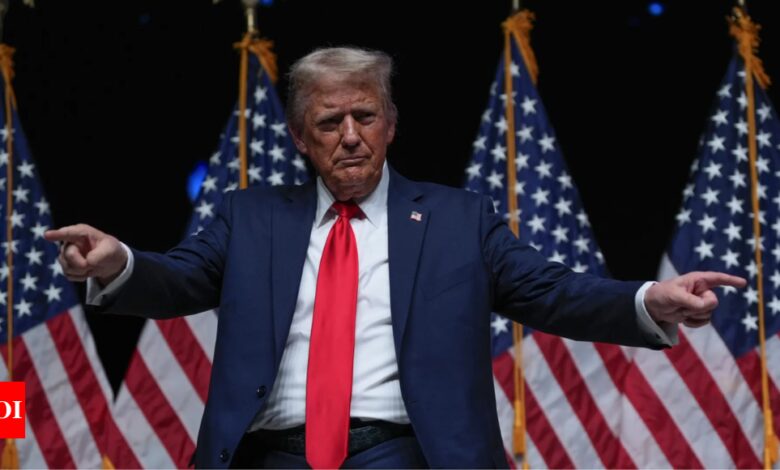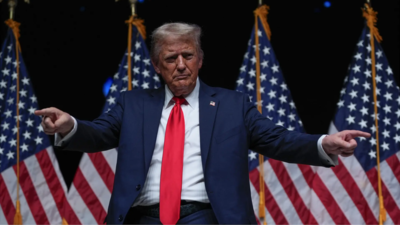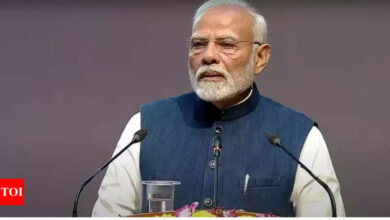India
Trump announces tariffs on Canada, Mexico and China: should India be concerned? | India News – Times of India



“Thousands of people are pouring through Mexico and Canada, bringing crime and drugs to levels never seen before,” Trump claimed. He labeled the border situation an “invasion” and insisted that these tariffs would remain in place until the alleged crises were resolved. While the rhetoric mirrored his first term, Trump’s second bid for tariffs promises a broader economic impact, potentially driving up U.S. consumer prices for everything from cars to groceries.
Following Trump’s announcement, benchmark indices Sensex and Nifty ended their two-day rally to close lower on Tuesday, reflecting weak global market trends amid concerns over tariff threats from the newly-elected US president. Global markets also reacted sharply to Trump’s announcement: the Mexican peso fell sharply, while the Canadian dollar and Asian shares also fell. Japan’s Nikkei fell 1.4% and the Australian dollar weakened.
Also read: Tariffs and tensions trump trade
Should India be worried?
Trump, who has described Prime Minister Narendra Modi as “a friend of mine” and visited India during his first presidency, has repeatedly criticized India’s trade policies, calling India a “tariff king” and accusing the country of imposing excessive taxes on American goods.
“India is a very big player. We have a great relationship with India. I had that too. And especially the leader, Modi. He’s a great leader. Great man. He’s really a great man. He brought it together. He has done a great job. But they’re probably asking for just as much,” Trump had said at a rally before his re-election.
The imposition of higher tariffs on Indian steel and aluminum during his first term led to retaliatory tariffs on American products such as almonds and apples. Trade experts believe that similar tensions could resurface if Trump’s policies focus on India again.
Also read: Experts warn of higher tariffs on Indian goods under Trump’s ‘America First’ policy
Ajay Srivastava of the Global Trade Research Initiative had earlier warned that sectors such as autos, textiles and pharmaceuticals could face higher tariffs under Trump’s proposed ‘reciprocal trade policy’.
“His America First agenda would likely push for protective measures such as reciprocal tariffs on Indian goods, potentially putting up barriers to key Indian exports such as cars, wine, textiles and pharmaceuticals,” Srivastava had explained.
However, there is a potential silver lining. Trump’s primary focus remains on China, whose trade volume with the US far exceeds that of India. Should Trump impose stricter tariffs on China, Indian companies could fill the gap in sectors such as textiles and manufacturing, provided they have the capacity to scale up production. “If Trump increases tariffs on India by a lower magnitude than on China, India could benefit,” Jayant Dasgupta, former Indian ambassador to the WTO, had told TOI.




